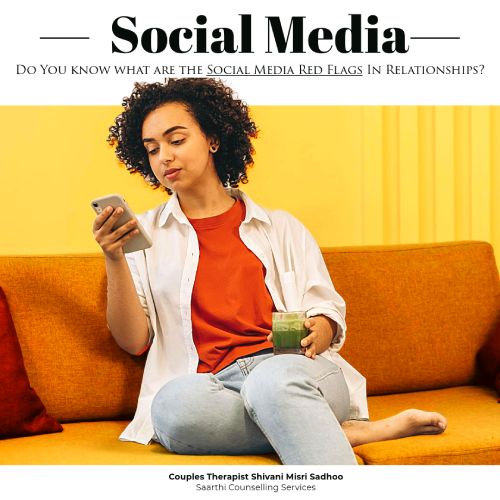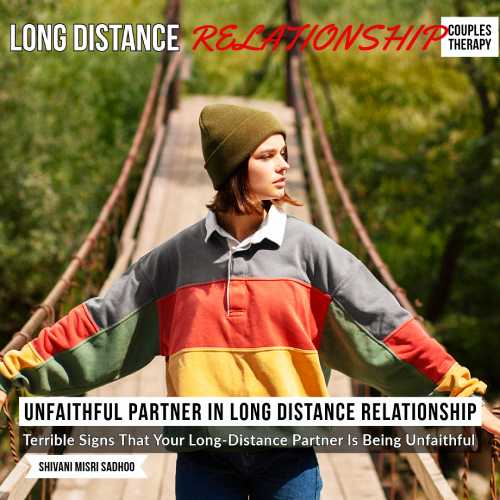Did you know that it is perfectly normal to have feelings for another person even while you are married? These brief infatuations with another person are part of human nature, rooted in our brain chemistry. However, these feelings do not reflect anything about your marriage, your spouse, or the person you’re having a crush on.
While such feelings can add thrill and excitement to your life, they might also bring feelings of guilt and fear. Do not worry. Here are certain things that are being explained in this blog.
What do you need to do when you are married, yet are attracted to someone else?
Eminent couples therapist and marriage counsellor in Delhi, Shivani Misri Sadhoo is here to tell you what you can do when you are married but have a crush on someone else.
Accept your Feelings – Perhaps the first and foremost step in getting over your crush while married is to acknowledge and accept your feelings. Recognizing that crushes are a natural part of the human experience and do not signify a lack of love for your spouse or a failing marriage is crucial.
By admitting your feelings to yourself, you can take active measures to manage them, preventing them from leading to a potential affair. This self-awareness empowers you to gain control over your emotions, rather than allowing them to dictate your actions, ultimately helping you to move past the crush.
Reflect and Reconnect – When you’re married and having a crush on someone else, reflecting on your marriage is crucial. It helps you understand the potential consequences of acting on those feelings. Assessing what you stand to lose reminds you of the value of your relationship and the life you’ve built together.
Additionally, it prompts you to consider if the person you’re attracted to is truly worth jeopardizing your marriage. Furthermore, reflection may uncover underlying issues within your relationship that need attention. This introspection can lead to open communication with your spouse, strengthening your bond and addressing any areas for improvement.
Stay Away from Your Crush – Any kind of temptation is hard to resist, especially when it involves someone outside of your marriage. When you have a crush on someone, the best course of action is to create distance. While complete avoidance may be impossible, limiting contact is crucial. Setting clear boundaries and sticking to them prevents the crush from escalating.
Reducing interactions gradually diminishes the intensity of feelings over time, safeguarding the sanctity of your marriage. By prioritizing distance, you prioritize your commitment to your spouse and ensure the crush doesn’t jeopardize your relationship.
Set Clear Boundaries – Familiarity can intensify feelings and blur boundaries, potentially jeopardizing a marriage. It’s important to establish clear boundaries in such cases. By maintaining distance and limiting interactions with the crush, you prevent the escalation of emotions. Sending mixed signals only fuels confusion and potential misunderstandings, complicating matters further.
The sooner you recognize that managing a crush is solely your responsibility, the better it will be for you to avoid such behaviours that could harm your relationship. Communicating openly with your partner about boundaries reinforces trust and commitment. Remember, prioritizing your marriage means actively safeguarding against the allure of a crush and steering clear of actions that may compromise the relationship’s integrity.
Honest Communication – We all know that communication is the cornerstone of a healthy relationship. When you have a crush on someone else while you are married, it is quite natural to feel guilty or embarrassed about these feelings, but keeping them secret only intensifies the struggle. By openly discussing your emotions with your spouse, you’re acknowledging their importance and seeking understanding.
This transparency not only strengthens trust but also cultivates a deeper connection. While the conversation may feel awkward, it’s an opportunity to strengthen the bond between you and your partner. By confiding in them, you’re not only sharing your struggles but also inviting their support and perspective. This honesty can breathe new life into your relationship, allowing both of you to overcome challenges together. Ultimately, open communication lays the foundation for surmounting obstacles and reaffirming your commitment to each other.
It is evident from this article that it would be wise to acknowledge and accept your feelings, reflect on your marriage, maintain distance from your crush, set clear boundaries, and communicate openly with your spouse. These steps strengthen bonds and safeguard relationships.





